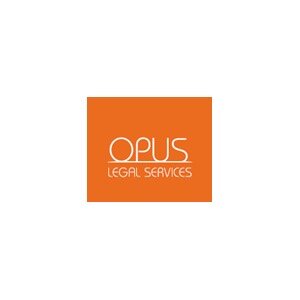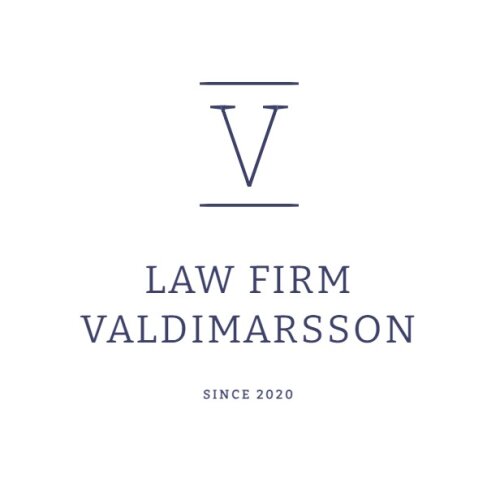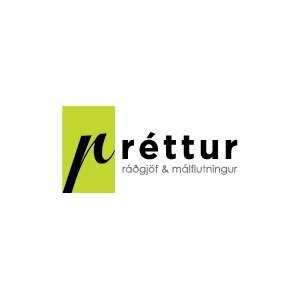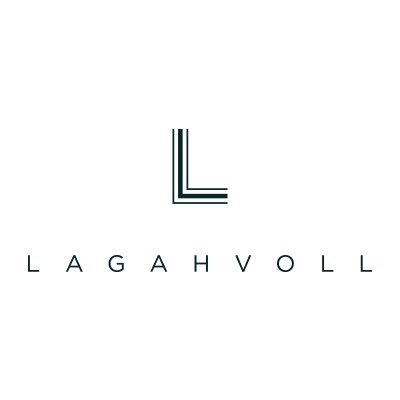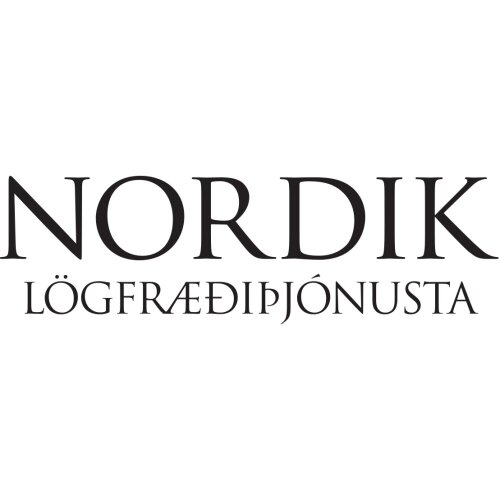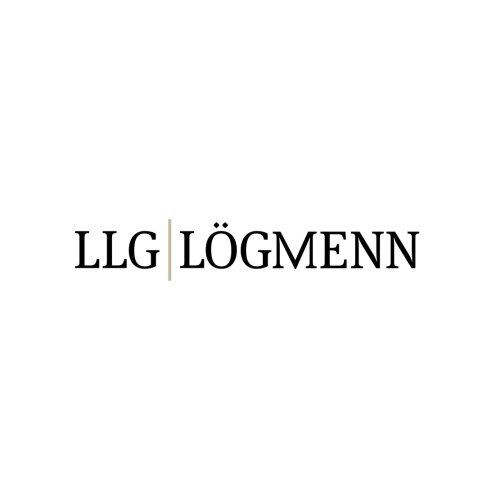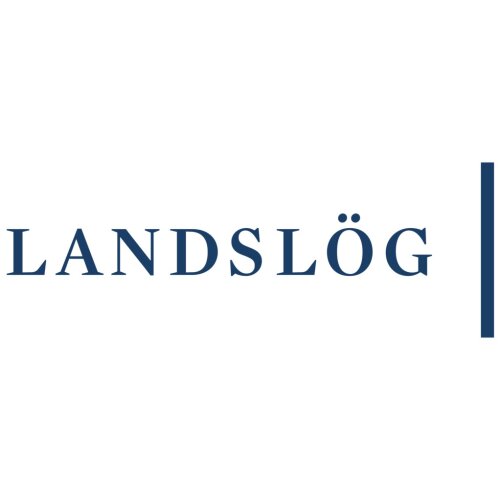Best Structured Finance Lawyers in Iceland
Share your needs with us, get contacted by law firms.
Free. Takes 2 min.
Or refine your search by selecting a city:
List of the best lawyers in Iceland
About Structured Finance Law in Iceland
Structured finance is a specialized area of finance that involves complex financial instruments designed to help companies and institutions manage risk, raise capital, or streamline cash flows. In Iceland, structured finance is commonly used in sectors such as banking, corporate financing, project development, and asset management. Structured finance arrangements can include securitizations, collateralized debt obligations, credit-linked notes, project finance, leasing, and more. The regulatory framework governing structured finance in Iceland is designed to ensure transparency, manage risk, and protect both domestic and international market participants.
Why You May Need a Lawyer
Structured finance transactions are often complex and involve significant legal and regulatory considerations. Individuals or companies may require the assistance of a lawyer in various scenarios, such as:
- Advising on the structuring and documentation of financial products
- Ensuring compliance with local and international financial regulations
- Negotiating with banks, investors, or counterparties
- Resolving disputes related to structured products or instruments
- Assisting with cross-border financing and legal risk assessments
- Navigating tax implications and reporting requirements
- Conducting due diligence in Mergers and Acquisitions (M&A) with a structured finance component
- Advising on insolvency or restructuring situations where structured instruments are involved
A knowledgeable lawyer can help protect your interests and minimize your financial and legal exposure in these situations.
Local Laws Overview
Structured finance in Iceland operates under a robust legal and regulatory framework, influenced by both domestic and European Union (EU) standards, particularly due to Iceland's membership in the European Economic Area (EEA). Key aspects include:
- Icelandic Act on Financial Undertakings governs the operation of banks and financial institutions, affecting how they structure and market financial products
- The Act on Securities Transactions sets out requirements for transparency, disclosure, and investor protection in dealing with structured finance instruments
- Central Bank of Iceland regulations control currency transactions, payment systems, and capital controls that may affect cross-border structured finance
- Collateral arrangements and secured transactions must comply with the national laws concerning pledge and mortgage
- Data protection rules apply, especially when transactions involve personal data or cross-border flows of information
- EU-derived regulations, such as the Markets in Financial Instruments Directive (MiFID II), Market Abuse Regulation (MAR), and Securitization Regulation, are often adopted or mirrored in Icelandic law
- Taxation of structured finance products is subject to Icelandic Revenue Law and double taxation treaties, where applicable
Understanding these legal frameworks is critical before entering into any structured finance transaction in Iceland.
Frequently Asked Questions
What is structured finance?
Structured finance refers to the use of complex financial instruments or strategies to help organizations raise capital, manage risk, or restructure existing obligations. This often involves pooling assets and issuing securities to investors based on those assets.
Is structured finance regulated in Iceland?
Yes, structured finance activities are subject to strict regulations under Icelandic law, including oversight by the Financial Supervisory Authority and adherence to EU-related financial standards.
Can foreign investors participate in structured finance deals in Iceland?
Foreign investors can participate, but they must comply with local laws, currency regulations, tax requirements, and disclosure obligations in Iceland.
What types of assets are commonly securitized in Iceland?
Common assets include mortgages, loans, receivables, and sometimes public infrastructure revenues through project finance arrangements. The market, however, is smaller than in larger financial jurisdictions.
What role does the Financial Supervisory Authority play?
The Financial Supervisory Authority oversees compliance with financial regulations, approves certain structured finance products, and monitors the stability and transparency of Iceland's financial system.
Are Icelandic banks active in structured finance transactions?
Yes, the major Icelandic banks participate in structured finance, especially in the context of corporate lending, project finance, and capital markets transactions, often working with law firms and financial advisers.
Do tax laws affect structured finance arrangements?
Tax laws can significantly affect how structured finance products are designed and implemented, including matters like withholding tax, VAT, and tax exemption on certain securities.
Is legal due diligence necessary for structured finance?
Yes, legal due diligence is critical to identify risks, ensure compliance with regulations, and confirm asset ownership before closing any structured finance deal.
Can structured finance be part of a corporate restructuring in Iceland?
Structured finance solutions can be used in corporate restructuring to refinance debt, isolate troubled assets, or provide interim financing for distressed companies.
What should I look for when hiring a lawyer for structured finance?
Choose a lawyer or law firm with proven expertise in financial law, strong local knowledge, a track record in structured finance deals, and familiarity with both Icelandic and international regulatory environments.
Additional Resources
If you need more information or guidance, consider reaching out to the following organizations and resources:
- Financial Supervisory Authority (Fjármálaeftirlitið) for regulatory advice and compliance matters
- Central Bank of Iceland for information on capital controls and currency regulations
- Directorate of Internal Revenue (RSK) for tax implications related to financial products
- Icelandic Bar Association for locating qualified legal professionals
- Ministry of Finance and Economic Affairs for updates on financial legislation
- Professional networks such as the Icelandic Financial Services Association for industry insights
Next Steps
If you believe you require legal assistance with a structured finance issue in Iceland, take the following steps:
- Identify your primary legal needs and gather related documents
- Contact a specialized financial or commercial law firm with experience in structured finance
- Prepare a list of questions to discuss your goals and concerns clearly
- Review the qualifications and track record of your chosen legal representative
- After your initial consultation, follow their guidance on compliance, structuring, and risk management
- Stay informed about changes in laws and market conditions that may affect your situation
Engaging a qualified Icelandic lawyer early in the process will help ensure your structured finance transaction is both legally secure and strategically sound.
Lawzana helps you find the best lawyers and law firms in Iceland through a curated and pre-screened list of qualified legal professionals. Our platform offers rankings and detailed profiles of attorneys and law firms, allowing you to compare based on practice areas, including Structured Finance, experience, and client feedback.
Each profile includes a description of the firm's areas of practice, client reviews, team members and partners, year of establishment, spoken languages, office locations, contact information, social media presence, and any published articles or resources. Most firms on our platform speak English and are experienced in both local and international legal matters.
Get a quote from top-rated law firms in Iceland — quickly, securely, and without unnecessary hassle.
Disclaimer:
The information provided on this page is for general informational purposes only and does not constitute legal advice. While we strive to ensure the accuracy and relevance of the content, legal information may change over time, and interpretations of the law can vary. You should always consult with a qualified legal professional for advice specific to your situation.
We disclaim all liability for actions taken or not taken based on the content of this page. If you believe any information is incorrect or outdated, please contact us, and we will review and update it where appropriate.
Browse structured finance law firms by city in Iceland
Refine your search by selecting a city.






